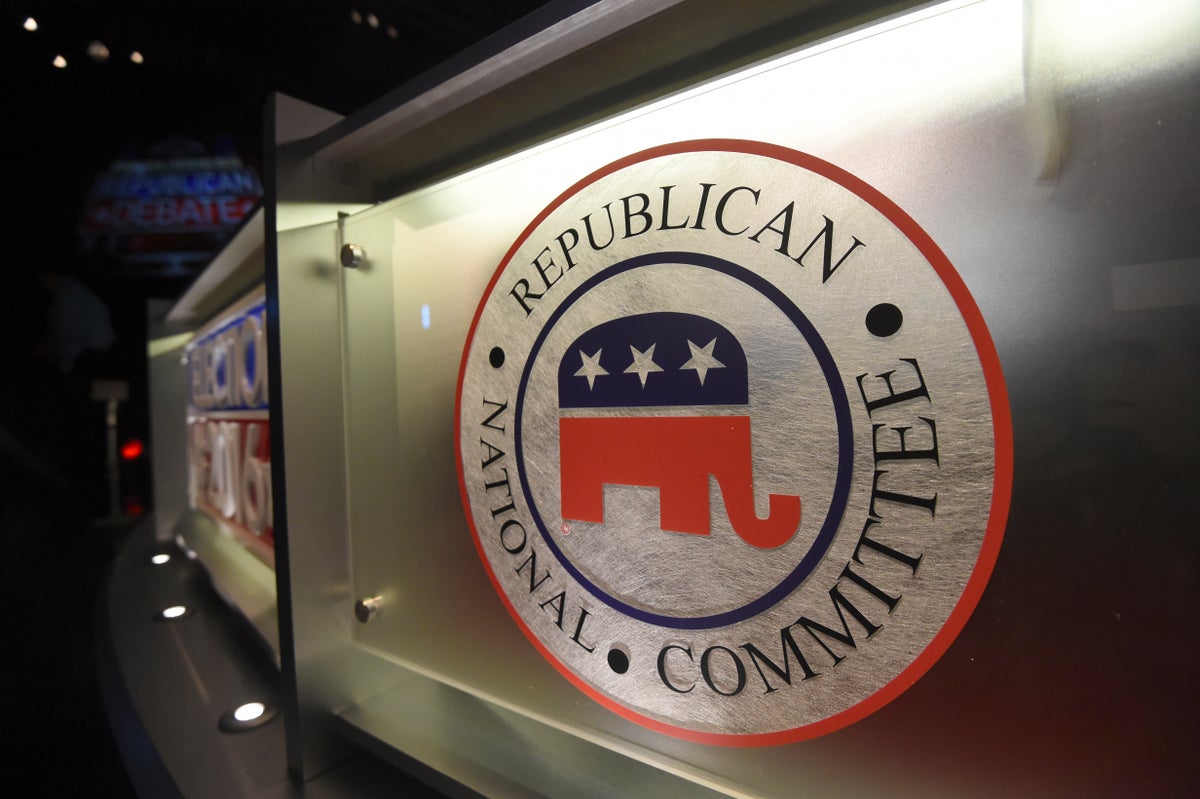
Republican presidential candidates will be blocked from the debate stage this summer if they do not sign a pledge to support the GOP's ultimate presidential nominee, according to draft language set to be adopted when the Republican National Committee meets next week.
The proposal sets up a potential clash with former President Donald Trump, who has raised the possibility of leaving the Republican Party and launching an independent candidacy if he does not win the GOP nomination outright. While RNC officials and Trump aides downplay that possibility, such a move could destroy the GOP's White House aspirations in 2024 and raise existential questions about the party's future.
“After the primary, it is imperative to the health and growth of our Republican Party, as well as the country, that we all come together and unite behind our nominee to defeat Joe Biden and the Democrats,” RNC Chair Ronna McDaniel said in a statement to The Associated Press when asked about the loyalty pledge.
As many as a dozen Republicans are expected to enter the 2024 presidential contest as the GOP braces for an all-out civil war in the months ahead.
Much of the party is eager to move past Trump and his divisive politics, but in reality, Republican leaders have few, if any, tools to control the former president given his popularity with the GOP's most passionate voters. RNC leaders are hopeful that a loyalty pledge, while ultimately unenforceable, would generate some shared commitment to unity, albeit a fragile one, as the presidential primary season takes off.
A senior Trump aide could not say whether the former president would sign the pledge to support the eventual nominee but suggested privately that he plans to participate in the debates. Campaign spokesman Steven Cheung declined to answer the question directly as well.
“President Trump is the undisputed leader of the Republican Party and will be the nominee," Cheung said. “There is nobody who can outmatch President Trump's energy or the enthusiasm he receives from Americans of all backgrounds.”
Facing similar concerns in 2016, Trump signed a similar loyalty pledge that was not tied to debates, but he later reneged as the primary campaign became more contentious. At the very first Republican primary debate that year, Trump was the only candidate on stage who refused to commit to supporting the party's eventual nominee unless it was him.
And just last December, Trump shared an article on social media encouraging him to seek a third-party bid to punish the GOP should Republican primary voters select another presidential nominee in 2024.
Meanwhile, there is no such threat on the Democratic side.
Virtually every Democrat thought to have presidential aspirations has already promised to unite behind President Joe Biden, assuming the 78-year-old Democrat follows through on his plan to seek a second term. Biden may face token resistance from a lower-profile intra-party rival — activist and author Marianne Williamson is exploring another White House bid, for example — but the Democratic president would face little pressure to appear on the debate stage before the fall of 2024 for the general election debates, should they occur.
The Republican loyalty pledge is among several provisions likely to be adopted as the RNC's Temporary Standing Committee on Presidential Debates meets next week to determine the rules governing which candidates may participate in the GOP's upcoming debate season — and which media networks will host the events.
The committee is considering between 10 and 12 debates to begin in late July at the Reagan Library in California or at the RNC’s summer meeting in Milwaukee, the host of the GOP’s next national convention.
Committee officials are sorting through proposals from as many as 18 media companies eager to host a debate. They include major television networks like CNN, MSNBC and Fox and lower-profile conservative favorites like Newsmax, according to people directly involved in the process who spoke on the condition of anonymity to share internal discussions.
While the likes of CNN and NBC hosted Republican primary debates in 2016, Republican officials suggest it would be a mistake to assume they will be selected this time around given widespread disdain for the networks among the party's base. Representatives from each network will pitch the RNC in person next Wednesday and Thursday.
Meanwhile, the criteria for debate participants will almost certainly include a new donor threshold to demonstrate broad support among the party's grassroots in addition to a polling threshold of either 1% or 2%. Participants will also be asked to sign a pledge to avoid any general election debates hosted by the Commission for President Debates; the commission has hosted every general election presidential debate since 1988, but Republicans increasingly believe the non-partisan group is biased against them.
While there are many moving pieces, GOP leaders are most concerned about the party's ability to come together after what promises to be a divisive primary election season.
Dave Bossie, a former Trump aide and current RNC member leading the debate committee, noted that the committee is modeling its 2024 loyalty pledge after the 2016 pledge that every Republican candidate signed.
“All Republicans can agree that Joe Biden has been a disaster for America," Bossie said. "Therefore, it should be easy for every candidate to pledge unity toward defeating the radical Biden administration.”







